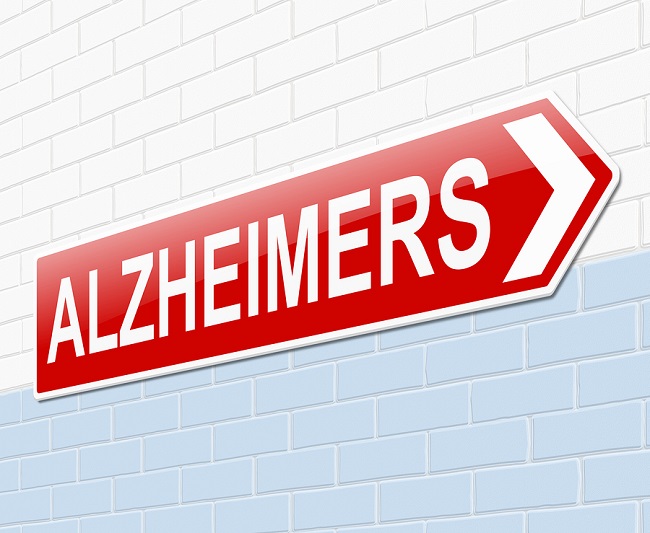- Make It Yourself Lavender Heart-Shaped Bath Bombs!
- 20 Things You Never Knew About “Down There”
- 12 Best Foods For Those Suffering From Arthritis Pain
- 12 Personal Hygiene Mistakes Almost Everyone Makes (Mom Never Told You About #4!)
- 15 Medicinal Plants And Herbs From The Cherokee People
- 12 Mind-Blowing Benefits Of Drinking Coconut Water During Pregnancy
- 12 Outstanding Winter Foods That Won’t Fatten You Up Like A Christmas Turkey
Top 10 Ways You Are Killing Your Brain (#5 – Who Knew?!)

Photo credit: bigstock.com
Without your brain, your body is pretty much dead in the water. Of course, without your body, your brain could go on, but life wouldn’t be so great. This dilemma reminds us of the old joke, “Who is the boss of the body?”
No matter who you think the winner is in this debate, the fact remains that no one wants to feel as if their memory or cognitive function is slipping away. If you’ve watched family members with dementia or Alzheimer’s slowly toddle down that rocky path, you have probably sworn that you never want to go down that road.
Although there are many things that are out of your control, the truth is that there are also plenty of things you can do — or stop doing — that will greatly reduce your risk of causing damage to your noggin.
Keep reading and find the top 10 ways you are doing damage to your grey matter, and how making some simple changes now can make a big difference in your brain power down the road.
1. High Cholesterol
Very few people consider the damage their high cholesterol level is doing to their brain. When cholesterol builds up in the arteries, it reduces the flow of blood to the brain. With lower levels of nutrients and oxygen, the brain suffers damage. Everyone knows that saturated fat causes strokes and heart attacks, but very few people consider what this restriction in your blood flow is doing to your brain. Be sure that you eat a healthy diet to keep those cholesterol numbers down.
2. Recreational Drugs
When we are talking about recreational drugs, we don’t mean pot. Drugs such as cocaine, glue, meth, and heroin rapidly age the body and, quite literally, fry the brain. Have you ever seen the before and after mug shots of those who do hard drugs? Yeah, they suddenly look decades older than their actual ages. Recreational drugs weaken your immune system, leaving you vulnerable to serious infections. Their high level of toxic chemicals (which you are willingly putting in your body) are killing off brain cells and permanently altering other parts of your brain. Drugs like crack and Ecstasy can alter your moods permanently, greatly increasing your risk of developing depression and other types of mental illness later in life. If you think these are just some harmless fun, you are only fooling yourself. Stop. Today.
Continue to Page 2

Photo credit: bigstock.com
3. Lack Of Stimulation
Your brain is like most other parts of your body: If you don’t use it, you lose it! Your brain needs exercise just as much as any other part of your body. Watch some of the people you consider to be super smart — chances are high that they are always reading, doing crossword puzzles, or playing other little mind games like Sudoku. Creative thinking and a younger brain go hand in hand, so learn to play a musical instrument, listen to a wide variety of music, try your hand at painting or visit museums to learn about different styles or art periods. Learn to play chess, or play Scrabble with your friends instead of breaking out the Xbox.
4. Excessive Alcohol Consumption
When you consume alcohol in high amounts you generally cut back on eating. Alcohol numbs the stomach and is actually high in calories. The problem is that it is also very low in nutrients and tends to use up the body’s reserve of vitamins, minerals, and other micronutrients. Many alcoholics have extremely low magnesium and vitamin B1 (thiamine). A deficiency of magnesium causes depression, confusion, irritability, disorientation, and feelings of persecution. A lack of vitamin B1 causes confusion, memory loss, mood swings, and lack of coordination. (Sound like some of the heavy drinkers you know?) Moderate alcohol consumption is good for the body and mind, but excessive alcohol consumption should be avoided like the plague.
5. Skipping Breakfast
You probably never imagined that not eating breakfast was hurting your grey matter, but it does! You might hate to admit it, but Mom was right. When you don’t eat breakfast, you are lowering your blood sugar levels to the point that there is a very small supply of nutrients to your vital organs, including your brain. Don’t skip breakfast! If you have no appetite in the mornings, try to at least drink a smoothie so your body can get the energy it needs, and your brain can feel more alert.
6. Poor Diet
Junk foods, processed foods, fast food, and those sugary treats all have one thing in common: They all have something called advanced glycation endproduces (AGEs). These compounds act like little terrorists, tying up your DNA so that it is virtually disabled. Once enough of your DNA is tied up, you can actually experience organ failure. Foods that are highly processed such as hot dogs or that are high in sugar, such as donuts, have the highest levels of AGEs. AGEs are nothing to fool around with, as they have been linked in numerous studies to just about every degenerative disease known to man. These include diabetes, arthritis, heart disease, hypertension, cancer, and dementia. Eat a healthy plant-based organic diet and avoid the junk food.
Continue to Page 3

Photo credit: bigstock.com
7. Smoking
You already know that smoking causes heart disease, cancer, and many other diseases, but a recent study links smoking with a gradual cognitive decline in men. A compound commonly found in tobacco called NNK becomes a carcinogen once inside the body. Although this doesn’t do direct harm to the brain, it does cause inflammation, one of the leading causes of dementia and multiple sclerosis. You have plenty of reasons to stop smoking, and here is another one. Unless you can picture yourself smoking away in a nursing home with no idea who you are or how you got there, stop smoking today.
8. Skipping the Bookstore or Library
Reading books (not video game instructions or Facebook memes) stimulates multiple areas of the brain. It also changes the brain and sparks those “light bulb” moments when the brain processes new information. The French National Institute conducted a study which found that when people avoid reading, they had an 18 percent greater risk of developing dementia. Worse still, once dementia set in, these non-readers had worse symptoms and quicker development of this disease than avid readers. Your brain is constantly adapting to your environment and the information you feed it. By reading books, you are continuously supplying your brain with new information that it must work to process.
Reading keeps your cognitive skills, especially your verbal skills, high throughout your life. Just 30 minutes of reading each day is all it takes to keep your brain sharp and give your brain a kind of “force field” that can help protect it from decline. By the way, those electronic “books” that you download simply wear out the eyes, create headaches, and even interrupt sleep. Comprehension is actually better when you read regular, old books, rather than a digital book. So don’t pass by that bookstore in the mall; pick up a few new reads (or visit your local library for free books!) and prepare to be amazed.
SEE ALSO: Can Marijuana Actually Protect the Brain? Cool!
9. High Blood Sugar Levels
In a recent study, poor memory, learning problems, and depression were all linked to the over-consumption of sugar. The U.S. Department of Agriculture reports that the average American eats about 156 pounds of sugar each year. Imagine that amount, if you can. Each bag of sugar sitting on your supermarket shelf is five pounds. Most Americans eat more than 31 bags of sugar each year. 31 bags! It’s absolutely mind-blowing! Most people have no idea that they are consuming that much sugar because it’s commonly hidden in foods. Don’t blow your brain power by chowing down on sugar.
10. Not Getting Enough Sleep
When you sleep, your body repairs itself, which means it creates new cells in your vital organs as well as your brain. Everyone has a bad night every now and then, but habitual sleep deprivation can actually cause brain damage as new cells are not being processed. Without new cells to replace the old cells, the brain begins to lose its ability to communicate with nerve cells. Sleep deprivation has long-term negative effects on your brain, so be sure to get a minimum of seven hours of sleep each night.
It’s not that complicated. To give your brain the best chance of working well your entire life, pay attention to the little things such as diet and reading. Your brain was meant to last a lifetime, so give it the care it deserves.
References:
































